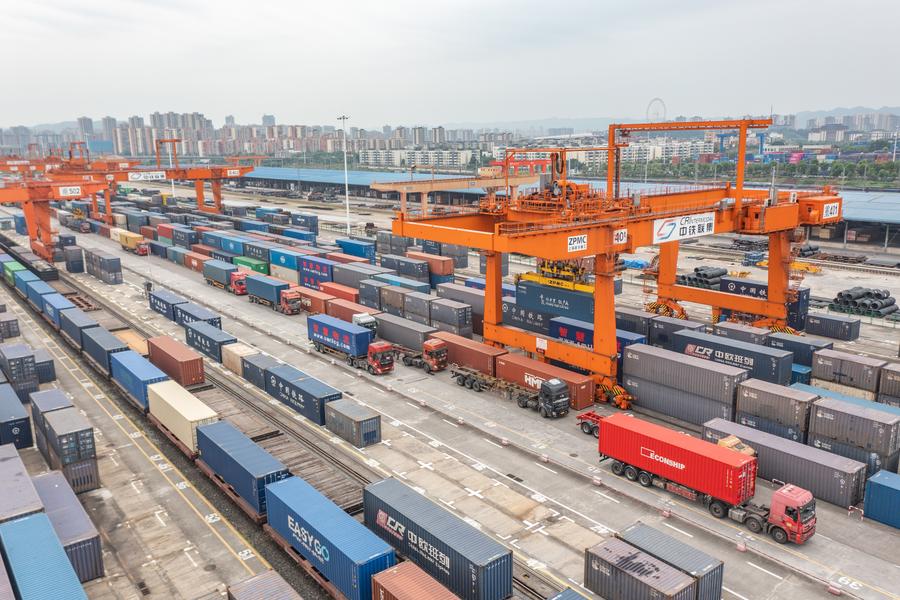China-Europe freight train service hits 100,000 trips

An aerial drone photo taken on July 30, 2024 shows vehicles transferring containers at the Tuanjiecun Station of Chongqing International Logistics Hub Park in Shapingba District of Chongqing, southwest China. (Xinhua/Huang Wei)
CHONGQING, Nov. 15 (Xinhua) -- The 100,000th China-Europe freight train departed from southwest China's Chongqing Municipality on Friday morning, a significant milestone in the development of the service that facilitates economic and trade exchanges between China and Europe.
The train, fully loaded with a diverse array of goods such as electronic products, vehicles and auto parts, mechanical components, and household appliances, is expected to arrive in Duisburg, Germany, in just over 10 days.
"The China-Europe freight train service enables more high-quality Chinese products to reach overseas markets faster and at lower transportation costs, while also creating a new gateway for foreign businesses to enter the Chinese market," said Zhang Xiaolong from Yuxinou (Chongqing) Logistics Co., Ltd.
In March 2011, the China-Europe freight train (Yuxinou) service was launched from Chongqing to Duisburg, establishing a direct overland trade corridor between China and Europe.
Over the past 13 years, the service has transported over 11 million twenty-foot equivalent units (TEU) containers of goods, valued at more than 420 billion U.S. dollars.
Its operational efficiency has significantly improved, with the time needed to complete 10,000 trips reduced from seven and a half years to just six months, according to China State Railway Group Co., Ltd.
So far, the China-Europe freight train network has expanded to 227 cities in 25 European countries and over 100 cities in 11 Asian countries.
The variety of goods transported has also greatly diversified, growing from a few categories like electronics to over 53 categories and more than 50,000 types of products. High-tech and high-value-added items, including China's new energy vehicles, lithium batteries and photovoltaic products, have increasingly become a part of the cargo, making their way to global markets via this service.
The service is widely seen as a vital "stabilizer" for Asia-Europe trade and economic ties.
- GLOBALink | China-Europe freight train service enhances connectivity, win-win cooperation
- Europe embraces China's visa-free policy as catalyst for deeper ties
- Europe, China "complementary" in green transition: Italian expert
- Chinese, European delegates attend forum on beautiful countryside
- Feature: China-Vietnam freight train service drastically boosts regional trade


